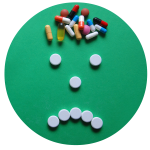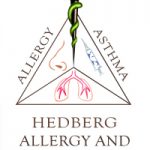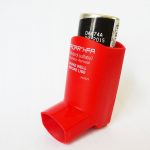Question: Is it my imagination or is this year’s spring allergy season worse? My kids have had trouble and even my husband, who almost never has allergy issues, is having a hard time this spring. Does the severity of allergy season vary and what causes those variances? If the over-the-counter medications aren’t enough to stop the symptoms, what should we do next? At what point do spring allergy symptoms tend to subside?
Answer: This allergy season has been one with higher pollen counts than we’ve seen in the last few years. I believe some of this has been sparked by our recent weather patterns. As many of you know, we had a very cold and snowy winter. When Spring came, we had several days in early April that were absolutely gorgeous, but there was a lot of wind and little rain. Without rain, there was nothing to hold down the pollen.
As you can imagine, these high tree and grass pollen counts were associated with more severe symptoms in our patients with known allergy and new symptoms in individuals who usually don’t have many problems in the Spring. Certainly quantity has had something to do with the severity of symptoms and the appearance of symptoms in those who are usually not bothered.
Spring allergy symptoms may occur between February and Memorial day. I tell my patients to be prepared between Valentine’s day and Memorial day. Early tree pollens like ash, birch, cedar and elm begin in February and then peter out around the time of Spring Break. The later spring tree pollens like oak, hickory, walnut, pine and others usually begin around Spring Break and persist into May, but they’re usually gone by June. Of course, as soon as people begin mowing their lawns, we see an increase in allergy symptoms due to grass pollens. So the tree pollen season overlaps with the grass pollen season.
About 20% of the population suffers from allergies. Most of these individuals can use over-the-counter medications to control their symptoms. Of course this year, many of the liquid antihistamines (Zyrtec and Claritin) that were manufactured by Johnson and Johnson have been recalled. (Click HERE to see a list of medications and their corresponding lot numbers which were recently recalled by Johnson and Johnson.)
Decongestants are helpful in relieving symptoms as well. Many of the cough, cold and allergy medications that used to be over-the counter have either been removed or reformulated due to two issues: 1. ) the controlled status of pseudoephedrine (Sudafed) since it’s being used to make “meth”; 2.) the governments concern that many parents were overdosing their children with antihistamines and sedating cough medications (example: giving a tablespoon (Tbs) of medication instead of a teaspoon (tsp).
Individuals who do not respond to over-the-counter medications should consider seeing their physician for further evaluation. In addition to oral antihistamines and decongestants, there are nasal steroid and nasal antihistamines that require a prescription. For those who have ocular symptoms, antihistamine eye drops can be helpful (available in prescription form and over-the-counter).
Anytime a child or adult has asthma symptoms, shortness of breath, wheezing or coughing, that is associated with pollen allergies, I recommend a physician visit since these can be dangerous and these symptoms represent a potentially more serious case.
Depending on the rainfall, pollens usually seem to decline in the month of June and by the 4th of July, our hot, dry weather is here. The pollen then stays measurable but lower until mid-August when the ragweed starts!
Note from the Mamas: Ladies, if you, your husband and/or kid is having allergy trouble, we can’t say enough good things about Dr. Hedberg and the staff at his clinic. They are AWESOME and really know how to put kids (and moms) at ease. We’ve heard this same recommendation from lots of local moms. You can reach Dr. Hedberg by calling his clinic at 479-464-8887 or visit the clinic website by clicking here. Also, be sure to check out the daily pollen count info Dr. Hedberg provides on nwaMotherlode (see middle column) every day!




